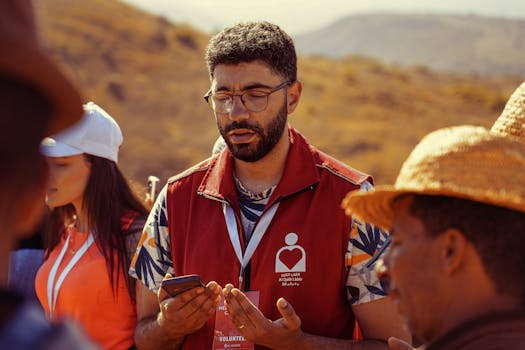Anúncios
We’ve all felt the buzz when a new technology hits the scene—AI, blockchain, or something entirely fresh. Yet have you ever wondered what careers are quietly blossoming behind those advances?
As technology grows, it’s shaping markets, rewiring traditional jobs, and creating brand-new industries. The future of work is already unfolding, and understanding these changes can open up doors for both seasoned pros and recent grads.
This guide explores promising career paths shaped by today’s digital revolution. Whether you’re charting your course or helping others through the tech maze, you’ll find useful, actionable insights here.
Tech-Powered Roles Reshaping the Workforce
Technology is now tightly woven into the fabric of most occupations, creating roles that include both familiar skills and groundbreaking tasks. Think of this like updating a home—some rooms keep their purpose, but the gadgets make everything function differently.
Imagine cybersecurity specialists as digital locksmiths, constantly improving the locks and alarms that protect valuable data. As with home security, the risks evolve, so do the tools and the people behind them.
- Data analysts interpret patterns, helping companies make sense of complex consumer behavior using advanced software.
- Cloud architects design reliable online infrastructure, ensuring businesses stay connected and secure from virtually anywhere.
- AI trainers curate datasets and teach artificial intelligence systems, guiding smarter, more human-like responses.
- Blockchain developers create systems for digital assets, financial security, and legally binding contracts built on tamper-proof code.
- Cybersecurity experts stay one step ahead of hackers, defending organizations from constantly evolving digital threats.
- Internet of Things (IoT) integrators connect devices, allowing for smarter homes, manufacturing, and healthcare.
These roles thrive at the intersection of tech and business, showing how new specialties drive innovation and growth across countless sectors.
AI and Automation: Creating Tomorrow’s Specialists
Take Sarah, for instance, who started as a junior data analyst but learned Python and basic machine learning. She soon transitioned into an AI operations role, working on chatbots for customer support.
Or consider Luis, whose job as a process manager evolved. After training in robotic process automation (RPA), he began optimizing repetitive tasks, freeing up coworkers for strategic projects and saving the company both time and money.
Meanwhile, Mia leveraged her background in linguistics to help train natural language processing models, bridging communication between machines and humans. Her expertise led to real-world improvements in translation apps and accessibility tools.
While these stories differ, they all show that with curiosity and upskilling, today’s professionals can transition into futuristic specialties. New jobs don’t just replace the old—they layer onto existing knowledge, creating unique opportunities.
Digital Healthcare Jobs: Beyond the Hospital Walls
Healthcare isn’t limited to scrubs and stethoscopes anymore. Technology is expanding possibilities far outside traditional medical settings as patients and systems adapt to smarter, faster care.
- Telemedicine coordinators organize virtual appointments, helping doctors see more patients and providing flexibility for rural or mobility-challenged communities.
- Healthcare data analysts turn massive streams of diagnostic and patient history data into actionable insights, highlighting trends and improving patient outcomes compared to legacy record-keeping.
- Medical device integration specialists ensure that wearable tech and remote monitoring gear connect seamlessly to physicians and health records, improving real-time decisions and patient monitoring.
- Digital therapists work with apps and wearable sensors to support mental well-being, a modern approach compared to traditional talk-only therapies.
- Bioinformatics engineers develop computational models to predict disease progression, merging computer science and biology more powerfully than ever before.
- VR rehabilitation technologists use virtual environments to make physical therapy more engaging and personalized, a marked step beyond conventional clinical exercises.
- Health cybersecurity analysts defend confidential medical records from data breaches, a task growing in scope as digital health expands.
Each position in this list illustrates a distinct blend of medical expertise with data, coding, or digital infrastructure, resulting in new career possibilities beyond the hospital or clinic floor.
The Expanding World of Green Technology Careers
Green tech is making waves in both established and emerging fields. Some jobs look much like their traditional counterparts but with an eco-friendly twist. Others are newer, built around high-tech methods to solve environmental challenges.
Picture a city investing in smart grids. Today, electrical engineers and urban planners work together, experimenting with tech-driven energy distribution for maximum sustainability, much like a chef optimizes a recipe’s ingredients for better flavor and nutrition.
| Role | Skills Needed | Impact Area |
|---|---|---|
| Renewable Energy Engineer | Electrical Design, Project Management | Solar, Wind, Hydro Projects |
| Environmental Data Analyst | Data Science, GIS Mapping | Pollution Control, Conservation |
| Sustainable Supply Chain Manager | Logistics, Sustainability Standards | Eco-Friendly Manufacturing |
The table above spotlights just a few of the growing roles enhancing sustainability. These jobs offer tangible ways to merge passion for the planet with advanced technical expertise.
Digital Marketing and Social Media: Careers With a Creative Twist
Digital marketing may seem less technical at first glance, but it’s quickly becoming a hybrid field where creativity and analytical skills mesh. Marketers are now data-driven storytellers, turning campaign analysis into winning content strategies and meaningful brand messages.
Much like a chef who crafts a new recipe by analyzing guests’ tastes, SEO specialists test and tweak keywords and website designs to attract their audience. Differences might arise, but the goal remains sharing the right message with the right crowd.
For example, video content strategists use analytics to see what resonates, iterating rapidly to capture consumer interest—much like how product testers refine gadgets after user feedback. Paid media buyers experiment with platforms, balancing budgets and trends for top-performing ads.
Careers here blend artistic flair and technical prowess, and those comfortable switching between right-brain and left-brain tasks thrive. New roles appear constantly, especially as new digital platforms emerge and old ones adapt.
Remote Work Technologies Expanding Access
- Virtual team facilitators manage online meetings, breaking down barriers for distributed groups.
- Cloud software support specialists offer technical help to remote staff, optimizing productivity from anywhere on the planet.
- Digital workflow consultants streamline online processes, saving organizations time and reducing errors in complex projects.
- Remote onboarding trainers help new hires feel connected even before they enter a physical office.
- VR workplace designers build immersive office spaces so virtual collaboration feels real and engaging.
- Remote cybersecurity technicians keep home-based workforces safe from online threats and device vulnerabilities.
- Cross-cultural communication coaches help teams bridge time zones and cultural differences.
The expansion of remote work technologies makes jobs more accessible, lowering relocation barriers and broadening opportunities across regions.
Teams can draw from a truly global talent pool, while professionals can choose roles based on fit rather than geography. This flexibility empowers workers to design their own career paths, driving satisfaction and productivity.
Entrepreneurship and Nonlinear Careers in Tech Fields
Some of the most exciting roles aren’t found in job listings—they’re created by individuals who blend technology with unique ideas. Picture entrepreneurs and freelancers building careers outside the corporate mold.
Take Jamal, who started a drone mapping service for local farmers, helping improve crop yields through precise aerial data. Or Alex, who consults for indie game developers, optimizing user experience based on analytics to boost downloads and player engagement.
Even within traditional companies, employees can weave together diverse digital skills to invent new positions or lead innovation projects. Tech-driven careers rarely move in a straight line; adaptability and self-direction open doors no matter your starting point.
Shaping the Future: Skills and Mindsets for Continued Growth
Today’s careers require learning, unlearning, and relearning. Imagine software engineers picking up new coding languages and healthcare professionals experimenting with remote diagnostics—both must operate like lifelong students.
Compared to previous generations, adapting now means developing both specialized expertise and strong communication, often using a flexible, project-based approach instead of a fixed job description.
What if more people embraced lateral career moves, combining curiosity, resilience, and willingness to collaborate? We’d see wider innovation, cross-pollination of ideas, and greater inclusivity in workplaces—all powered by technology’s progress.
Continuing the Journey: A Conclusion on Emerging Careers
Emerging careers shaped by technology are as varied as they are vital. From healthcare and green tech to remote teamwork and creative entrepreneurship, new opportunities are cropping up daily.
As technology advances, so do our options—and our responsibilities to adapt and upskill. Keeping pace isn’t just for coders; every field has new possibilities for those willing to learn.
The secret is to approach each new role or pivot as a chance for growth, not an obstacle. Collaboration, flexibility, and openness stand out as key skills across every specialty reviewed here.
Choosing a technology-driven career path is about more than chasing trends; it’s about building a future with purpose, resilience, and connection. The journey is ongoing, with endless opportunities for those who stay curious and informed.



